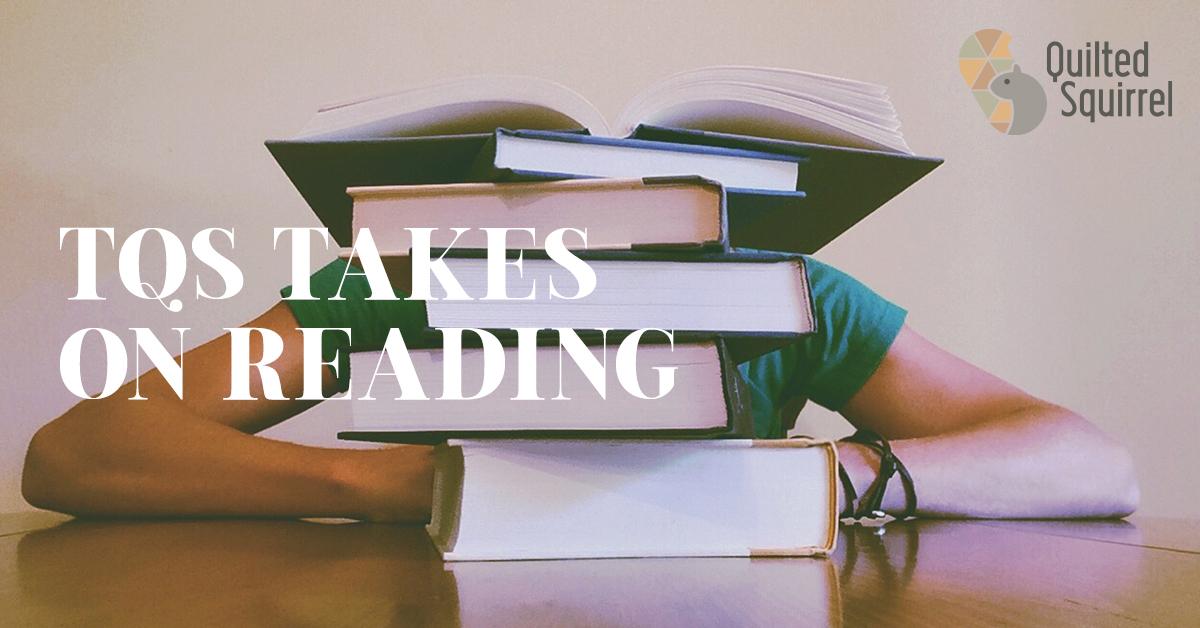It’s been a long, hard winter. Have we taken advantage of our time inside by reading some good books? Maybe so, maybe not. We asked the gang: Tell us what books you’re reading (if any), but try not to sound so pretentious about it, okay?
Here’s what we had to say.
Lisa, Graphic Designer
I used to love to read, but to be honest, I haven’t picked up a book since college, which is pretty embarrassing. Maybe this will change during the next phase of the pandemic, or maybe not? Only time will tell.
Steve, CEO
“Think Again: The Power of Knowing What You Don’t Know” by Adam Grant. I’m only 20 pages in, so the jury is still out. So far, so good, though. He writes very much in the style of Malcolm Gladwell, who’s my all-time favorite author. As it happens, Malcolm and Adam are friends, allegedly. Check back in a few weeks for a more thorough analysis of the book—one that digs deeper than Adam Grant’s platonic relationships.
Chris, Creative Director
There are a few books that I’ve started reading during “Pandemia,” and a few that I’ve yet to start. I think my attention span has been slowly regressing as I’ve aged. So, I mostly resort to reading magazines (usually “Wired” or “Fast Company”) since the content is more bite-sized and always different.
My book choices typically fall into three categories: biographies, music, and marketing (or the psychology thereof). The “in progress” book list includes “The Hacking of the American Mind: The Science Behind the Corporate Takeover of Our Bodies and Brains,” which is pretty self-descriptive; and “Lose Well,” a fairly entertaining read by actor/comedian/podcaster Chris Gethard. He made me laugh when I saw him promoting it a while back on Stephen Colbert, so I decided to buy it.
In the “on my desk, yet to open” pile, I have “How Not to Plan: 66 Ways to Screw It Up,” and Keith Richards’ “Life”—so I can try to figure out how that guy is still alive… if he really is. I have a suspicion that he just may not know that he’s actually dead.
Tyler, Graphic Designer
I recently bought and haven’t started it yet, but “Ready Player Two” by Erenest Cline. I enjoyed reading “Ready Player One” (much more than watching the film), and I have been excited to jump back into the Oasis.
Jerry, Marketing Strategist
I’d love to say “I’m reading” anything, but I rarely read books. I’ve probably read more users’ manuals in my lifetime. I did just listen to the audiobook of “Bird Box,” which made for a relaxing ride into and home from work for a week, but I don’t think it counts as reading unless it’s an assignment or some sort of punishment. Does reading sheet music count? Wait, no, I don’t do that either.
James, Copywriter & Content Strategist
I’ve just been dropped onto the Desert Planet of “Dune” where water is scarce but war, betrayal, and an unrelenting will to survive run rampant. Has the legend of Muad’Dib been prophesied? We’ll have to survive the colossal, man-eating sandworms to find out! (Cue the “Reading Rainbow” theme.)
Emily, Account Executive
The 19th century is traditionally referred to as the “Golden Era” of Russian literature. Romanticism permitted a flowering of especially poetic talent: the names of Vasily Zhukovsky and later that of his protégé Alexander Pushkin came to the fore. Pushkin is credited with both crystallizing the literary Russian language and introducing a new level of artistry to Russian literature. His best-known work is a novel in verse, “Eugene Onegin.” An entire new generation of poets including Mikhail Lermontov, Yevgeny Baratynsky, Konstantin Batyushkov, Nikolay Nekrasov, Aleksey Konstantinovich Tolstoy, Fyodor Tyutchev and Afanasy Fet followed in Pushkin’s steps.
Prose was flourishing as well. The first great Russian novel was “Dead Souls” by Nikolai Gogol. The realistic school of fiction can be said to have begun with Ivan Turgenev. Fyodor Dostoyevsky and Leo Tolstoy soon became internationally renowned to the point that many scholars such as F. R. Leavis have described one or the other as the greatest novelist ever. Ivan Goncharov is remembered mainly for his novel “Oblomov.” Mikhail Saltykov-Shchedrin wrote prose satire, while Nikolai Leskov is best remembered for his shorter fiction. Late in the century, Anton Chekhov emerged as a master of the short story as well as a leading international dramatist.
Other important 19th-century developments included the fabulist Ivan Krylov; non-fiction writers such as the critic Vissarion Belinsky and the political reformer Alexander Herzen; playwrights such as Aleksandr Griboyedov, Aleksandr Ostrovsky and the satirist Kozma Prutkov (a collective pen name).*
*This has all been copied directly from the Wikipedia page on Russian Literature, none of which I have actually read.
Thanks for reading!
Follow us for more stuff on Facebook, LinkedIn, and Twitter.
Sign up for our newsletter...
Give us your email and get our stuff delivered to your inbox. You might not regret it.
Thanks for subscribing! You won't be sorry.
Uh oh. Something went wrong.
